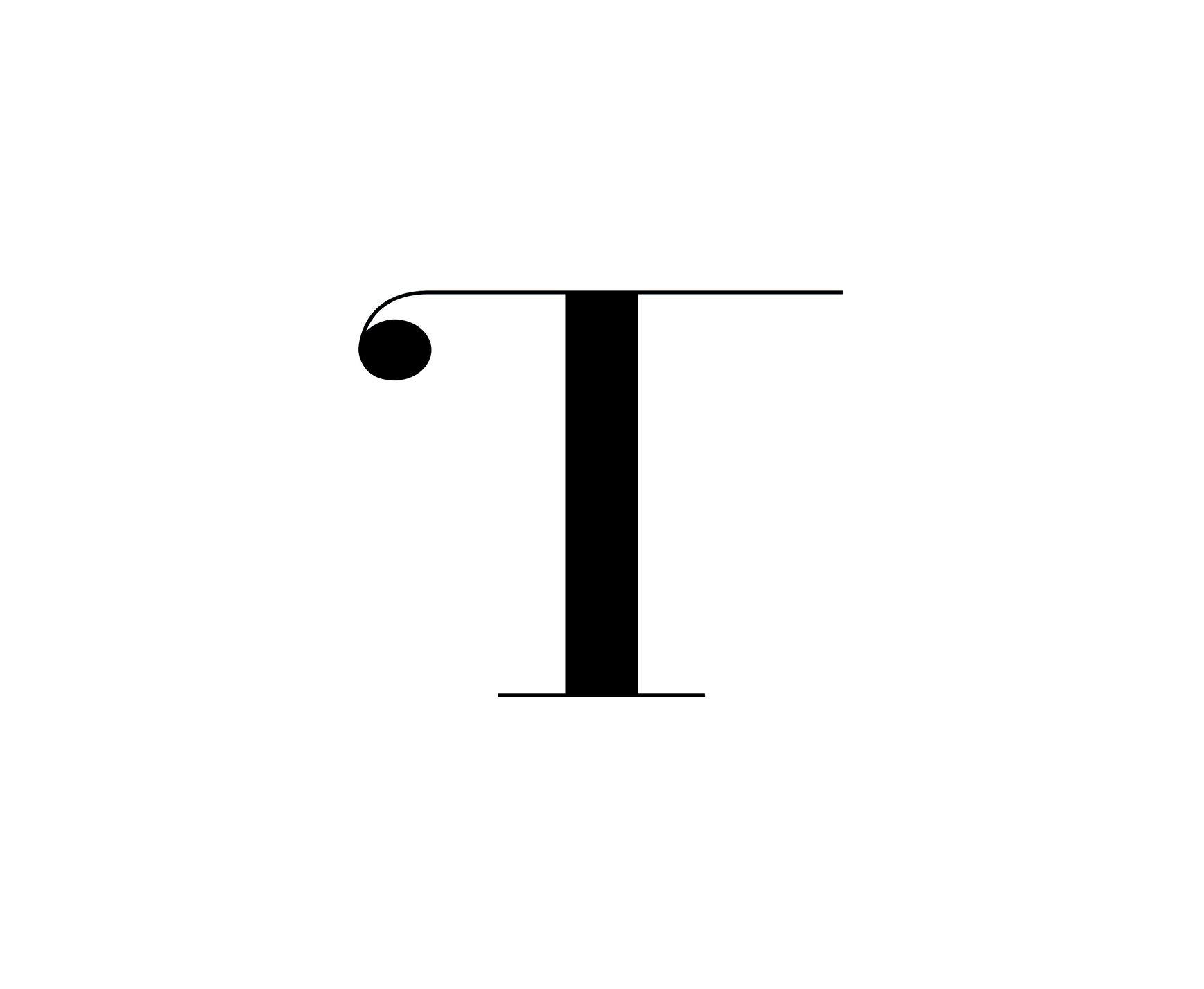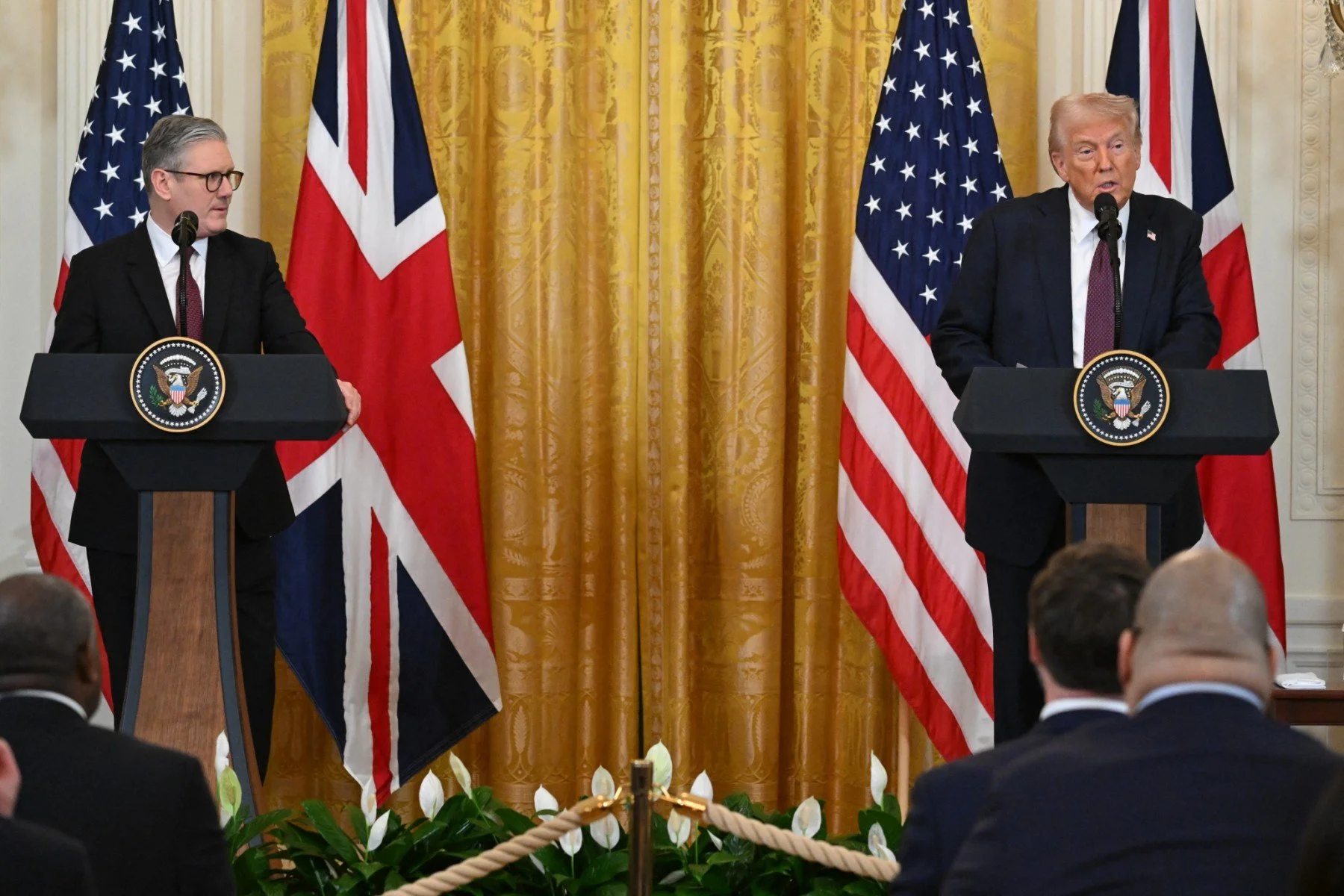Main developments of UK-EU relations since the 'Leave' vote
Paris, France (AFP) May 19 - Britain and the 27-nation European Union on Monday reached a landmark deal launching a new chapter in relations after their divorce in 2020.
TOPSHOT - European Council President Antonio Costa, Britain's Prime Minister Keir Starmer and European Commission President Ursula von der Leyen host a joint press conference during the UK-EU Summit at Lancaster House in London on May 19, 2025. British Prime Minister Keir Starmer described a landmark deal setting out closer ties on defence and trade with the European Union as a "win-win" on Monday. "This deal is good for both sides," Starmer told reporters at a joint press conference with EU chiefs Ursula von der Leyen and Antonio Costa following their summit in central London. (Photo by Carl Court / POOL / AFP)
Here is a look back at key developments since the UK's shock decision to 'Leave' in 2016.
- 2016: referendum -
In a June 23, 2016 referendum Britons vote by 52 percent to have their country become the only one to leave the EU.
Britain's Conservative prime minister David Cameron, who led the campaign to remain in the EU, resigns.
He is replaced by Theresa May.
On March 29, 2017, May formally triggers the exit process, which gives the United Kingdom two years to leave the bloc.
- 2018/2019: divorce deal -
UK and EU negotiators agree a draft divorce deal in November 2018.
But the British parliament votes against it three times in 2019, delaying Brexit and forcing May to step down in July 2019. Brexit figurehead Boris Johnson succeeds her.
In October British MPs approve in principle a new Brexit divorce deal Johnson has struck with the EU, but refuse to rush it through, meaning Johnson's goal of leaving the bloc on October 31, 2019 falls through.
EU members agree to postpone Brexit yet again, until January 31, 2020.
- 2020: finally, Brexit -
Johnson's resounding win in a snap general election in December 2019, smooths his Brexit bill's passage through parliament in January 2020.
On January 31, 2020 the UK formally leaves the EU.
It enters a transition period up until December 31, 2020, during which much in the relationship does not change.
An agreement on future trading relations comes into effect at 2300 GMT on December 31, 2020. EU rules cease to apply and the UK leaves the single market.
- 2022: Northern Ireland protocol -
In June 2022, Johnson's government proposes a draft law amending parts of the Brexit divorce deal concerning trade though Northern Ireland, which has a land border with EU member Ireland, citing supply difficulties.
A deal is struck which includes the "Northern Ireland Protocol", keeping the province in the European single market for physical goods, unlike the rest of the UK, but creating a customs border down the Irish Sea between Northern Ireland and the rest of the UK.
The EU brandishes the threat of retaliatory measures for breaches in the agreement.
In February 2023 new prime minister Rishi Sunak reaches an agreement, the "Windsor Framework", with the EU to overhaul the trading rules for Northern Ireland.
It creates a check-free lane for goods coming from the rest of the UK that are intended to stay in Northern Ireland, without entering Ireland and the EU's market.
- 2024: relations improve -
After the Labour Party returns to power in the UK in July 2024, after 14 years of Conservative governments, new Prime Minister Keir Starmer expresses a will to improve relations with the EU, without seeking to go back on Brexit.
The warming ties are fuelled by cooperation over the war in Ukraine, the common Russian threat faced and the uncertain situation after the return to power in the United States of Donald Trump.
On Monday, at the first EU-UK summit since Brexit, Britain and the EU strike a deal setting out closer ties on defence and security.
The bloc agrees to lift controls on UK exports in exchange for Britain extending EU fishing rights in its waters.
TOPSHOT - European Council President Antonio Costa (L), Britain's Prime Minister Keir Starmer (C) and European Commission President Ursula von der Leyen pose for a photograph on board the Type 23 Frigate, HMS Sutherland, following the UK-EU Summit in London on May 19, 2025. British Prime Minister Keir Starmer described a landmark deal setting out closer ties on defence and trade with the European Union as a "win-win" on Monday. (Photo by Stefan Rousseau / POOL / AFP)
Main points of the agreement between the EU and the UK
London, United Kingdom (AFP) May 19 - British Prime Minister Keir Starmer Monday signed an agreement in London with the heads of the European Union marking a new chapter in UK–EU relations since Brexit on 31 January 2020.
Here are the main points:
– Security and defence –
The two sides have agreed to a security and defence partnership at a time when Europe is rearming in the face of the threat from Russia and amid uncertainty about the policies of US President Donald Trump.
The pact will allow British representatives to attend certain EU ministerial meetings and take part in European military exercises and missions.
It also aims to bring the UK defence industry more closely into European efforts to build a domestic industrial base.
It paves the way for British firms to tap into a 150-billion-euro EU fund, currently under negotiation among the 27 member states. However, an additional agreement will be needed, along with a financial contribution from London.
The UK stands to benefit significantly from such a deal, with companies like BAE Systems and Rolls-Royce expected to gain.
– Burgers and pets –
The EU and the UK have agreed to reduce checks on food and plant products in future trade -- a key demand from London.
"This would result in the vast majority of movements of animals, animal products, plants, and plant products between Great Britain and the European Union being undertaken without the certificates or controls that are currently required by the rules," according to the text of the agreement.
The EU remains by far the UK's leading trading partner. But UK exports to the continent have fallen by 21 percent since Brexit, while imports are down seven percent.
After a long absence, the UK will be able to sell British burgers, shellfish, sausages and other products in the EU, Starmer said. Britons will also be able to travel more easily with their pets, he added.
In return, the UK has committed to dynamic alignment -- with the ability to adapt over time -- with EU sanitary and phytosanitary rules, with some possible exceptions.
In the event of a dispute, an independent resolution mechanism will be set up, but the European Court of Justice will remain the final authority.
Other economic measures agreed include "closer cooperation" on emissions quotas, allowing UK companies to avoid the EU's carbon border tax.
According to Downing Street, these measures should add "nearly £9 billion (10.7 billion euros) to the British economy by 2040".
– Fisheries –
The issue was particularly important to France, which made it a prerequisite for any broader agreement between London and Brussels.
The UK has agreed to extend until June 2038 an existing deal allowing European vessels to fish in British waters and vice versa. The current agreement was due to expire in 2026.
The extension will ensure stability and certainty for fishing crews without increasing the quantity of fish EU vessels can catch in British waters, Downing Street said.
In Scotland, criticism was swift. The fishing sector "seems to have been abandoned" by London, Scottish First Minister John Swinney said, while the Scottish Fishermen's Federation described the deal as a "horror film".
French minister Agnes Pannier-Runacher, who oversees fisheries, welcomed the agreement, saying it "will provide economic and political visibility for French fishing".
– Youth mobility –
Brussels had pushed for a mobility programme allowing young Europeans to study and work temporarily in the UK, and vice versa. But London remains wary of any arrangement resembling free movement that could boost immigration figures.
No firm commitment was made on Monday and the agreement text does not use the word "mobility". The two sides simply expressed willingness to "work on a balanced programme" enabling young people to work, study, volunteer or travel in the UK and EU for a limited time under yet-to-be-determined conditions.
London and Brussels also discussed the possibility of the UK rejoining the Erasmus+ student exchange programme.
The number of EU students in the UK has halved since Brexit, falling from around 148,000 in 2019-2020 to 75,500 in 2023-2024.
– Border crossings –
To facilitate border crossings, the two sides pledged to "continue discussions" so that UK nationals could make greater use of "eGates" -- automated passport control gates.
This should help British holidaymakers avoid the "dreaded queues" at EU airports, according to Downing Street.







